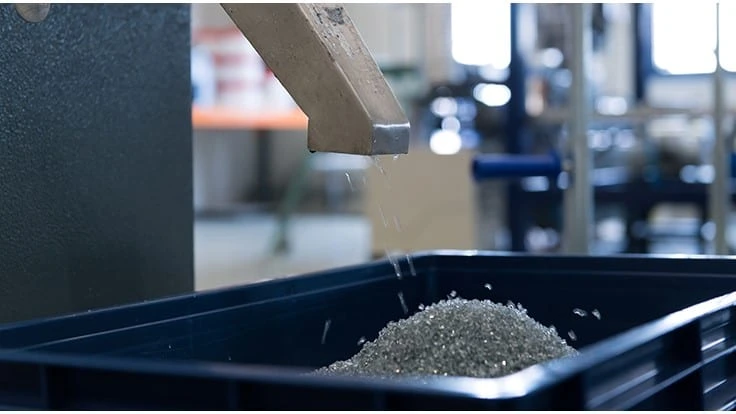
Photo provided by CuRe Technology
United Kingdom-based Coca-Cola European Partners (CCEP), which calls itself the world’s largest independent Coca-Cola bottler, says it will provide funding to startup company CuRe Technology, calling the investment an “important step on its journey towards 100 percent recycled PET (rPET) for its plastic bottles.”
Netherlands-based CuRe Technology says it will “initially apply its end-to-end partial depolymerization recycling process to transform opaque and difficult to recycle (ODR) food-grade PET to high quality recycled PET (rPET) that can be used again for food and drink packaging in one continuous process on the same site.”
CuRE Technology describes itself as a consortium led by two Netherlands-based companies: the Morssinkhof Group and the Cumapol/DuFor Group. Also part of the consortium are Netherlands based DSM-Niaga and NHL Stenden University of Applied Science, also in the Netherlands.
“CuRe is an exciting technology startup with transformational potential developed by an experienced consortium, making it an ideal investment for CCEP Ventures,” says Joe Franses, vice president of sustainability at Coca-Cola European Partners. “Our investment in CuRe underlines our commitment to supporting innovations that have the potential to drive growth in our business and our sustainable packaging goals. It also offers us the potential to access vital rPET volumes that will help to accelerate delivery of our 100 percent rPET ambition for our PET bottles.”
The funding from CCEP, via an investment by the CCEP Ventures fund, will enable CuRe to accelerate its “polyester rejuvenation” technology from pilot plant to commercial readiness, says the bottler. Once the technology is commercialized, CCEP says it will “receive the majority of the output from a CuRe-licensed, new-build plant.”
CuRe Technology describes depolymerization as having the potential to “upcycle lower grade PET that cannot currently be recycled via mechanical recycling means and is instead currently downcycled, incinerated or sent to landfill. “ Adds the firm, “These depolymerization technologies could play a role in significantly increasing the supply of rPET whilst also accelerating the transition to a circular economy for PET bottles by reducing our reliance on virgin oil-based PET.”
“Polyester is one of the world’s most reversible plastics and should not go to waste,” states Josse Kunst, chief commercial officer at CuRe Technology. “In the pilot plant phase of the CuRe process, we were supported with a subsidy from the European Union and the three northern provinces of the Netherlands. Now our ambition to create an energy-efficient solution for product-to-product polyester transformation will be accelerated because of this funding.”
Once operational, CuRe has the potential to support CCEP’s ambition, in partnership with The Coca-Cola Co. in Western Europe, to eliminate virgin oil-based PET from its PET bottles within the next decade, says CCEP. Meeting that goal “will contribute to removing a total of over 200,000 metric tons of virgin oil-based PET from CCEP’s packaging portfolio per year, and support the transition to a circular economy for PET packaging,” states the firm.
Latest from Waste Today
- Rice Lake unveils in-motion truck scale system
- Rubicon appoints CEO
- DOJ and EPA announce $9.5M settlement with Stericycle
- Brightmark RNG delivers gas at 10 Midwest projects
- Waga Energy to upgrade landfill gas to RNG at Bena Landfill in California
- Amrep announces dealer partnership with MTech
- Plum Creek Environmental adds to sales staff
- Waste Pro VP added to university advisory board





